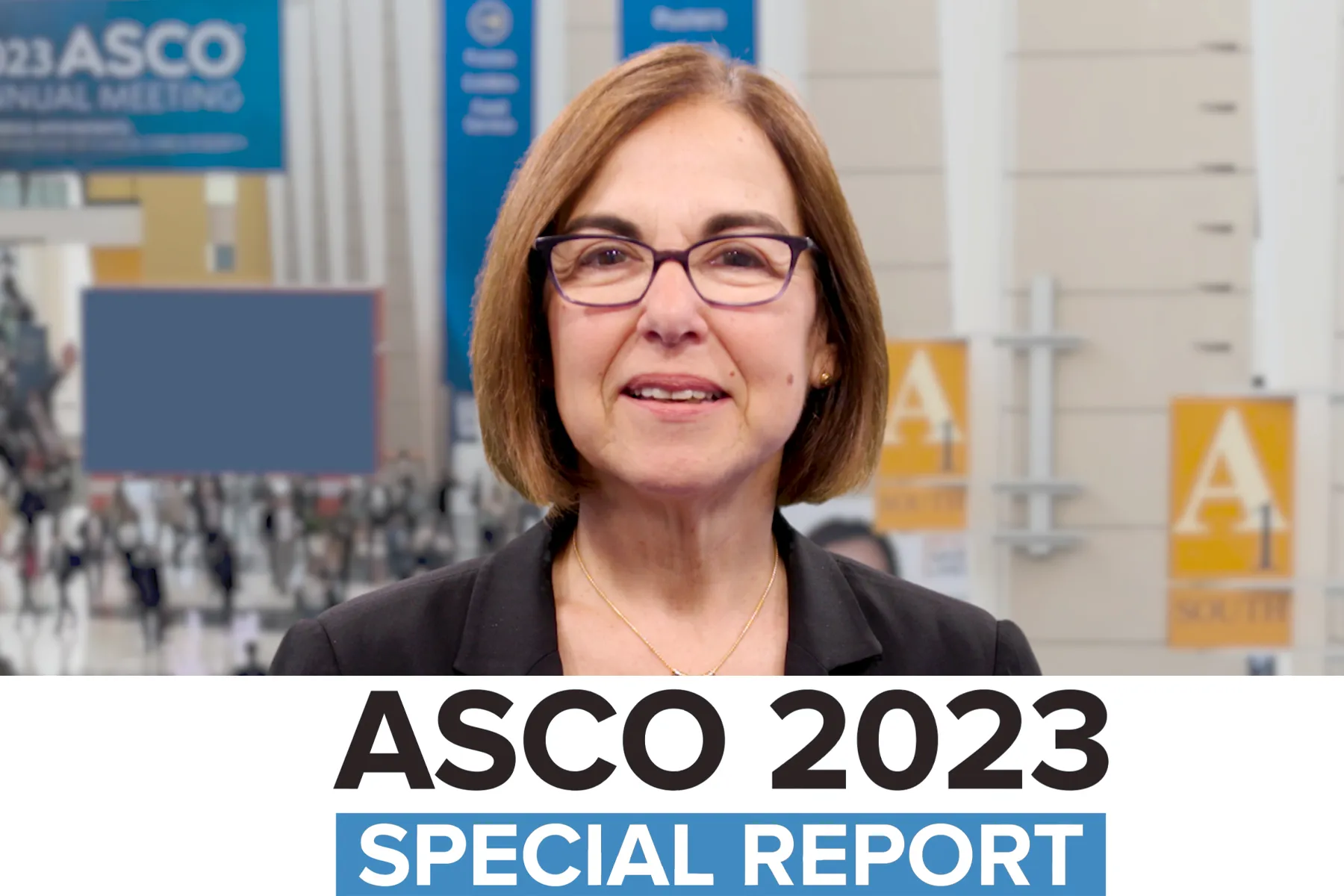LIDIA SCHAPIRA: I’m Dr. Lidia Shapira, a professor of medicine at Stanford University, where I’m also the director of the cancer survivorship program. At the 2023 annual ASCO meeting, researchers discussed a study they conducted on hope in patients participating in early phase clinical trials for new drugs or interventions.
Interestingly, they measured hope using scientific methods and found that patients with more hope experienced a better quality of life and reported fewer symptoms.
This research is exciting because it helps us understand the importance of encouraging hope and exploring its sources. I often consider hope as a vital sign, and this research gives me confidence that we can do more to understand what brings patients hope and how we can support them as healthcare providers.
LIDIA SCHAPIRA: At the 2023 annual ASCO meeting, I was encouraged by the work of a Canadian team who conducted a comprehensive review of published literature on caregivers, particularly those caring for individuals with advanced cancer.
This is an important area of study because caregivers also experience significant impacts on their quality of life due to the burdens of caregiving.
Remarkably, the researchers found that interventions aimed at helping caregivers yielded positive results. While there isn’t one specific type of intervention that stands out, counseling and other available interventions have shown to improve caregivers’ quality of life and emotional well-being.
This research emphasizes the importance of supporting caregivers and prompts us, as cancer clinicians, to consider how we approach and assist caregivers. It may not be enough to simply ask how they’re doing; we should actively provide counseling and other forms of help. I hope this research inspires more caregivers to seek assistance when needed and encourages my colleagues to implement interventions that better support caregivers of patients with advanced cancer.
LIDIA SCHAPIRA: At the 2023 annual ASCO meeting, I was pleased to see detailed work on how we can help cancer survivors, which aligns with my field of expertise.
In one study, researchers examined the likelihood of cancer survivors receiving screenings for breast and cervical cancer. They analyzed a large database and discovered that patients who received instruction through a care plan or guidance on the necessary tests were more likely to undergo the recommended screenings.
This finding emphasizes the importance of providing cancer survivors with specific advice on required tests, follow-up appointments, and consultations with specialists. We need to enhance our efforts in this regard.
My advice to cancer survivors is to always leave appointments with a clear understanding of what their next steps should be and when they should see their healthcare providers. As clinicians, we must do a better job of communicating our recommendations to ensure that patients receive the best care and follow the appropriate practices for their post-cancer health.

